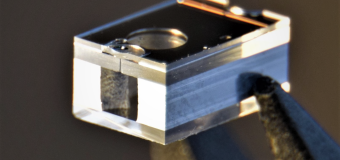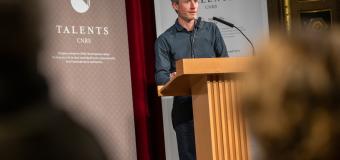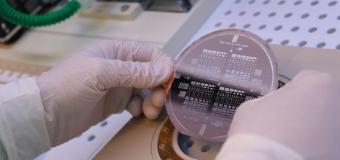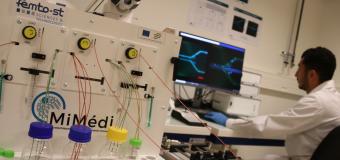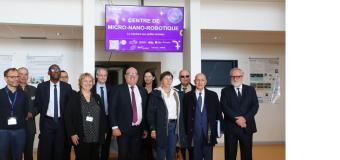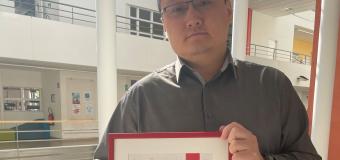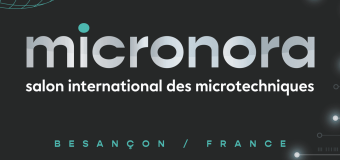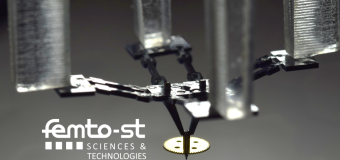A European project to prevent perineal tears
PELVITRACK offers a predictive tool for patricians as part of an interdisciplinary European consortium involving FEMTO-ST.
PELVITRACK has received funding from the European Union’s Horizon Europe research and innovation programme under grant agreement No 101186212.
This project, which brings together 11 partners from 7 European countries (France, Spain, Italy, Czech Republic, Portugal, United Kingdom, Switzerland) is one of 45 new projects selected from over 1100 applications, of which only 3 are coordinated in France.
The project is led by the Institut Mines-Télécom (IMT) Alès, and will run for 48 months (official launch scheduled for April 8, 2025), with EIC Pathfinder funding from the Horizon Europe program to the tune of €3.2 million.
Better anticipation of perineal tears
In Europe today, 32% of women and 16% of men are affected by perineal dysfunction.
These disorders can be linked to traumatic childbirth, hormonal factors, lifestyle or the practice of high-impact sports. In most cases, however, early detection means better treatment.
With a view to improving women's health, and in particular preventing serious perineal tears during childbirth, the PELVITRACK project was supported by the dynamics carried out by the BiomecaT team in the FEMTO-ST Institute's Applied Mechanics Department, in collaboration with FEMTO-ST's AS2M Department and Besançon University Hospital (Nicolas Mottet, obstetric surgeon): in particular, the thesis work of Marine Lallemant (now an obstetric surgeon at Lille University Hospital) and Tiguida Kadiaké, whose thesis is due to be defended on May 14, 2025
The aim of the project is to improve early diagnosis, refine prognosis and optimize patient care. To achieve this, PELVITRACK aims to develop a solution in a medical environment enabling real-time monitoring of perineal tears during childbirth, thanks to a hybrid approach combining experimentation and numerical modeling. This work includes experimental tests on animal models (pigs and sheep), numerical modeling of the clinical situations observed, and a multi-center clinical study in women.
In this context, the FEMTO-ST BiomecaT team (Patrick Sandoz, Arnaud Lejeune, Jérôme Chambert and Emmanuelle Jacquet) is working in particular on an ex vivo experimental campaign on porcine tissues and whole perineum. The team will also be involved in simulation work to reproduce the various clinical situations encountered during childbirth. Finally, the team will collaborate with Lille University Hospital on the in vivo acquisition of mechanical data fields. This project is in line with the team's ongoing interest in pelvic stability and protection of the female perineum during childbirth.
Partners (countries) :
Coord. CNRS (Emmanuelle Jacquet) including (FEMTO-ST, LMGC (FR), LMA (FR)) : Institut des Mines-Telecom (FR), LamCUBE (FR), CHUs (FR), : EPFL (Switzerland), University of Zaragoza (Spain), Polytechnic of Turin (Italy), University of Bohemia (Czech Republic), INEGI (Portugal), university hospitals and hospitals in Switzerland, and 2 private partners Virtual Care (UK) and Superviseme (Switzerland).
Contact : Emmanuelle JACQUET (FEMTO-ST)
N.B : Views and opinions expressed are however those of the author(s) only and do not necessarily reflect those of the European Union or the granting authority. Neither the European Union nor the granting authority can be held responsible for them.
[[{"fid":"39506","view_mode":"default","fields":{"format":"default","alignment":"","field_file_image_alt_text[und][0][value]":"logo Europe","field_file_image_title_text[und][0][value]":false,"external_url":""},"type":"media","field_deltas":{"1":{"format":"default","alignment":"","field_file_image_alt_text[und][0][value]":"logo Europe","field_file_image_title_text[und][0][value]":false,"external_url":""}},"attributes":{"alt":"logo Europe","class":"media-element file-default","data-delta":"1"}}]]


